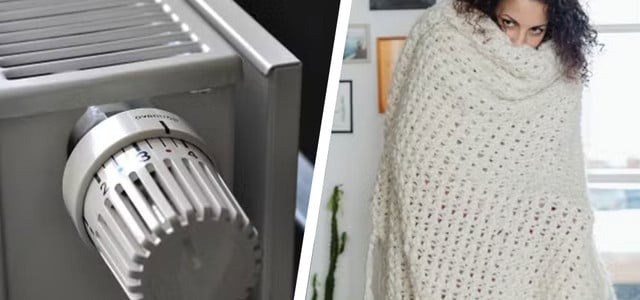
Energy prices remain high, which is why many people don’t want to turn on the heating yet. But is freezing recommended? When is it too cold in the apartment and can we even toughen ourselves up on our own? We asked a family doctor.
The temperatures are already below zero at night and it is now cold in the mornings and evenings. Since the costs for gas and electricity are still high, many people are not yet turning on the radiators – and if in doubt, they will freeze in their own four walls.
We have 2022 with Dr. Jakob Berger, family doctor and district chairman of the Bavarian Family Doctors Association, asked whether freezing can make us sick or whether – as cynical as it may sound to many – it can be a temporary solution to reduce energy costs.
Freezing instead of heating – is that recommended?
Not heating your apartment over the winter is not an option. However, many households tried to delay the point at which the radiators would be turned on. Even on milder days, the heating often stayed off last winter. This doesn’t always make sense because a minimum temperature indoors prevents mold. Also read: When does the heating season begin? That’s why you shouldn’t wait too long
Turning the heating down a few degrees saves energy and money. But is freezing at a low room temperature recommended or does it weaken our immune system and make us get sick more quickly?
This is what happens in the body when we are cold
To do this, you first have to know what freezing actually means and what it triggers in the body. Our body temperature must be maintained at a constant 37 degrees. In summer the body regulates temperature by sweating, in winter by freezing. Because when we freeze, the body sends a signal to our brain that the body temperature is threatening to drop.
Dr. Berger explains to us: “If the temperature sensors in the body notice that it is too cold, we freeze and the blood vessels contract.”
We all know the signs of cold: goosebumps, cold feet and hands, trembling and chattering teeth. And they all have a specific purpose. “With goosebumps, for example, the little hairs stand up and an insulating air cushion forms on the skin to better retain heat in the body,” explains family doctor Dr. Berger.
Family doctor Dr. Berger: “Shivering creates heat in the body”
“Shivering is a muscular activity to generate heat,” the health expert continued. And the unpleasant cold hands and feet are not a coincidence, but a protective mechanism of the body: When it is cold, less blood is pumped to the extremities in order to keep the important organs in the middle of the body warm.
Freezing is not healthy in the long term
Freezing is a protective reaction of our body and completely normal. But freezing is not recommended in the long term, as it weakens our immune system and makes us more susceptible to illness. “Wet cold and drafts are particularly hard on our bodies,” explains Dr. Berger versus Utopia.
It shouldn’t be so cold in the apartment that we freeze constantly. The comfortable temperature here depends on the individual, but Dr. maintains a room temperature of 20 degrees in the living room. Berger considers appropriate.
It doesn’t have to be warmer for the doctor – on the contrary: Dr. From an energy saving perspective, Berger believes it makes sense to lower the room temperature to 18 or 19 degrees. He has no health concerns and recommends putting on a thick sweater rather than turning up the heating. From a health perspective, living spaces should not be colder than 18 degrees.
This is how you can harden your body against the cold
18 degrees room temperature doesn’t sound pleasant for everyone. But you can get used to it and even actively do something to prevent yourself from freezing so quickly. Dr. Berger confirms that we can train our bodies.
“Using Kneipp water every day helps so that you feel less cold,” says the family doctor. If you want to approach it slowly, you can start with Kneipp knee massages in the evening or simply let cold water run over your body for 60 seconds after the shower. Experienced people can try cold showers.
The doctor has other tips to prevent freezing and to harden the body against cold:
-
Regular exercise in the fresh air, even when it is cold outside. This strengthens the circulation and immune system. Important: the right clothing.
-
Hot meals and hot drinks to keep the body warm.
-
Alcohol only in small quantities, as it dilates the blood vessels and the body then cools down more quickly.
Important: Only healthy people should use these tips and it is best to start slowly and improve step by step.
Read more on Techzle\.com:
- Heating properly: With these 15 tips you can save money and protect the environment
- Cycling in winter: Stay safe in snow, slippery conditions and darkness
- Cold feet: causes, possible illnesses and home remedies